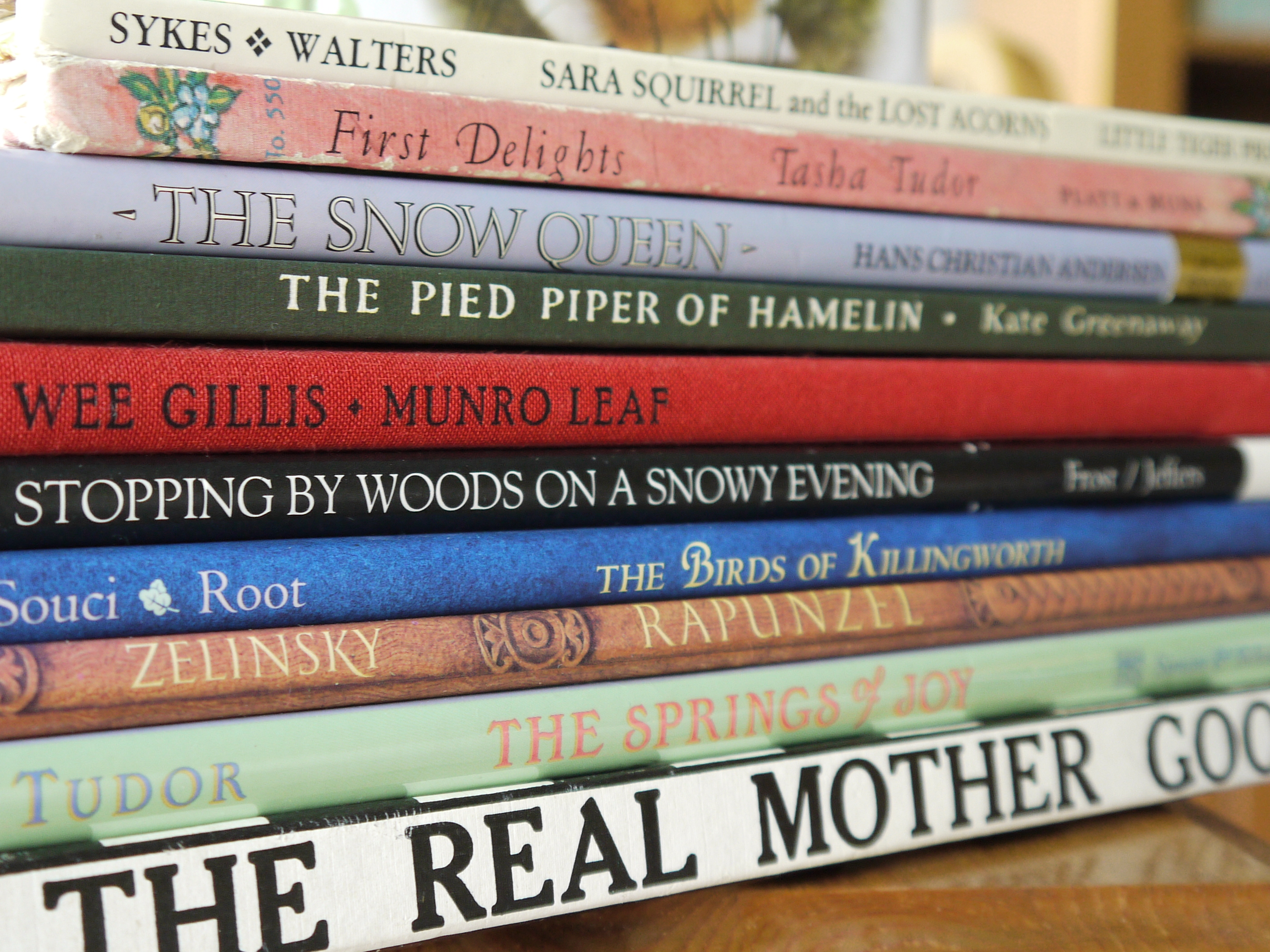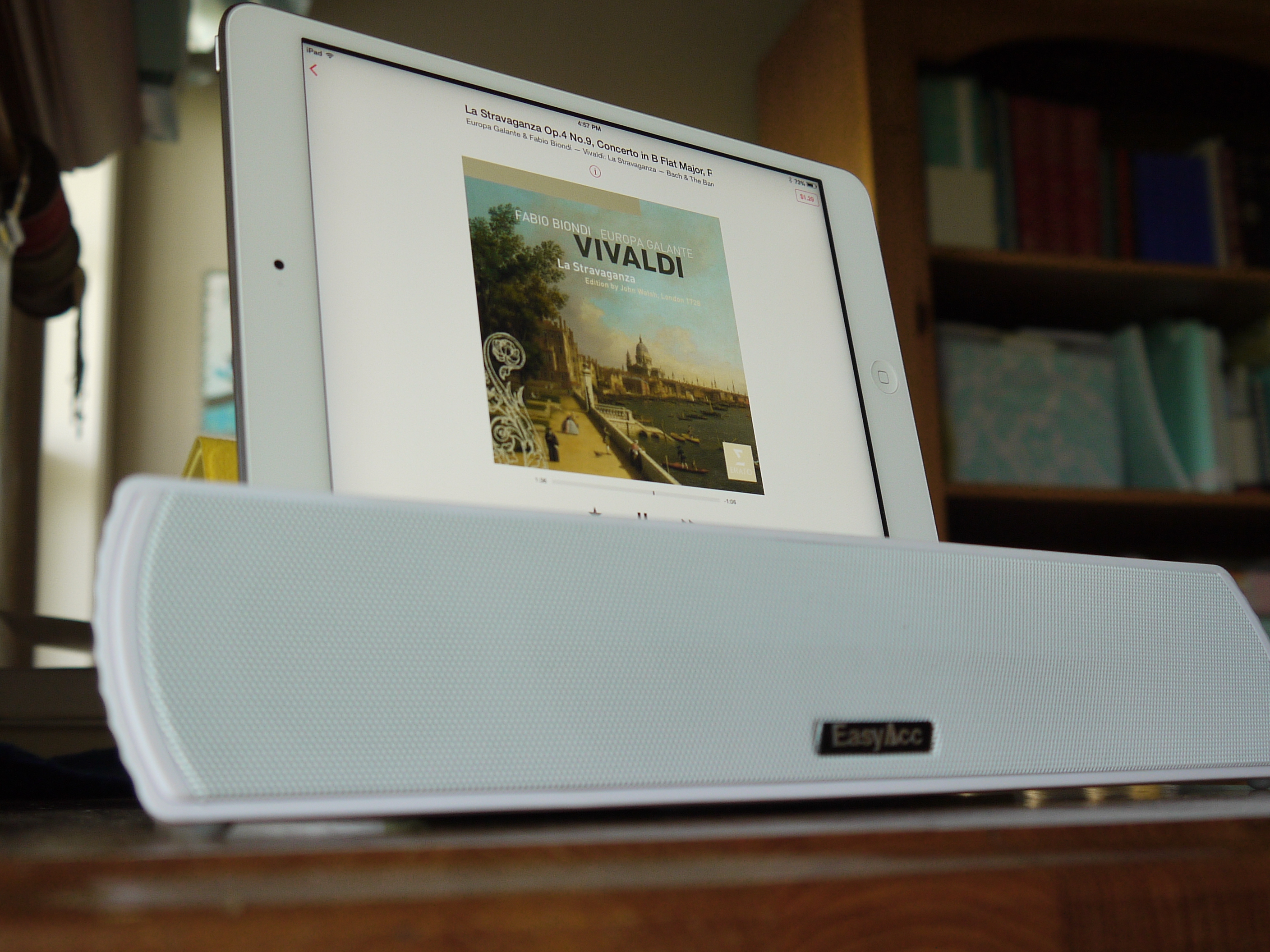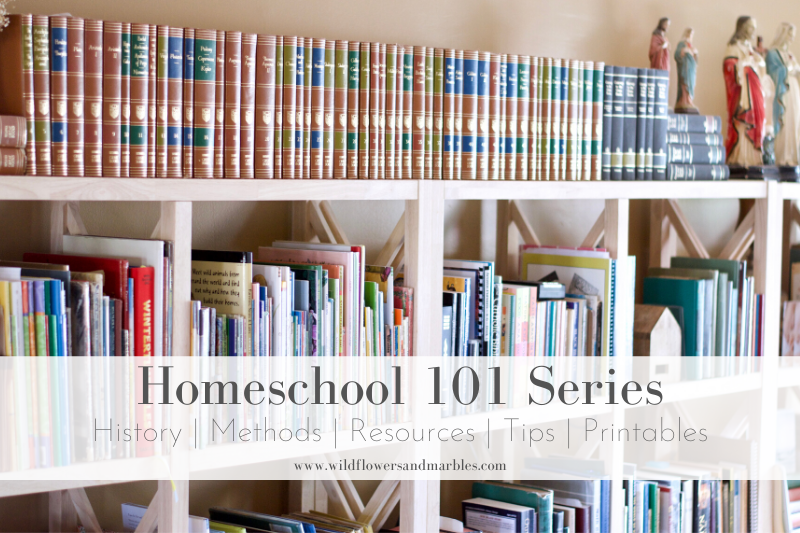Two Simple Ways to Prepare the Soil of the Imagination for an Education
Preparing the soil. It’s such an evocative expression, isn’t it? Most of us are tending our gardens, attempting to coax some semblance of life out of them while the heat and lack of rain seek to thwart our best efforts. We water, tend, weed – and if we are attentive and nurture, there is growth and fruit. Sometimes an abundance of growth. Enough to share even.
Our Lord emphasized this lesson in The Parable of the Sower which is recorded in three of the four gospels: Matthew 13:1-8, Mark 4:1-9, and Luke 8:4-8. Each time the parable is recorded by the gospel writers we’re exposed to very powerful imagery used by Our Lord to convey this lesson – the kind of imagery that takes root (I couldn’t resist – pun intended!)
Emphasis is mine:
Now when a very great crowd was gathering together and men from every town were resorting to Him, He said in a parable: “The sower went out to sow his seed. And as he sowed, some seed fell by the wayside and was trodden under foot, and birds of the air ate it up. And other seed fell upon the rock, and as soon as it sprung up it withered away, because it had no moisture. And other seed fell among thorns, and the thorns sprang up with it and choked it. And other seed fell upon good ground, and sprang up and yielded fruit a hundredfold. {Luke 8:4-8}
This parable has been on my mind lately, so I’ve been giving it some space to develop. I’ve really been thinking about how to ensure that the atmosphere of my home, and the Classical principles and Charlotte Mason philosophy and method we live, and especially the books we read and experiences we enjoy ensure that in my children, the seed falls on good ground.
Then, this weekend, I had the privilege of listening to Father James Jackson, FSSP, of Our Lady of Mt. Carmel Church in Littleton, Colorado, speak about Liberal Ideas in Education and reclaiming education as a pursuit of wisdom and growth in virtue. The talk was extraordinary – to say the least!
Fr. Jackson, before he was a priest, before he converted to the Catholic faith, was a student at the University of Kansas. He recounts with great wit and vibrancy his early experiences with Dr. John Senior (the originator of the 1000 Good Books List – here is another excellent tribute worthy of reading) as part of the Integrated Humanities Program in the 70’s.
One of the themes of Fr. Jackson’s talk was the wonder that he and many of his classmates rediscovered as part of this program. The idea of wonder is something I’ve been contemplating a lot lately, too, and what struck me (not as something surprising, but as something wonderful and underlining what I knew and had witnessed in my own experience) is that wonder is inborn in each of us and therefore relatively simple to find our way back to (if we feel we’ve been off that path). A key for him in recognizing his need for wonder, Fr. Jackson said, was in the stark realization (as part of the conversational dialogues through the program) that he knew nothing. How many days have I felt that way! Humility is a gift that opens doors, and one of those doors is wonder.
As I listened to Fr. Jackson speak further, quoting Quixote and just off-the-cuff recalling and reciting many poems (one of which was, The Destruction of Sennacherib which he learned as part of the Integrated Humanities Program), and recounting how the written form insisted upon in the Integrated Humanities Program was calligraphy (ALL written work was penned in calligraphy!), one theme began to stand out, and that was how necessary in his own reawakening of wonder it was for the good to lay a foundation and prepare the way for the great. Good poetry prepared the way for an appreciation of the Psalms, and so on… In fact, one may not be able to appreciate, may not even be able to recognize the great if that person has not prepared the soil of their heart and mind first of all with the good. The ground may be too hard, rocky and thorny and not able to receive the seed. Fr. Jackson gave many compelling and illustrative examples, and I kept thinking of this parable of the seed: the soft, fertile ground, the open-ness to goodness, truth and beauty and how good turned the soil so that it could receive the great and bear fruit.
As I came home from the Denver conference, I finished reading Dr. Stratford Caldecott’s amazing book, Beauty in the Word: Rethinking the Foundations of Education, and it all came full circle. (By the way, if you only read one book on education this year – let this one be it!)
The home is the place where the foundations are laid, and homeschoolers – even if they send their children to school later (and these children form the backbone of the new liberal arts colleges in America) – are the ones who today are fostering the ability to read and think and experience in traditional ways. … The starting point is always reading (and playing music) to the child as soon and as much as possible.
So there it is – the connection between the parable of the sower and the seed, the beginning of that good that must precede great, and the positive direction for almost every question in home education when some *thing* is not working as it seems it should. It is our starting point and a point of refreshment. And it’s so simple.
We have to prepare the soil with the good in two ways:
Reading
Music
Reading & Music
How simple is that? Eminently simple. Utterly do-able! And of primary importance.
- If you’ve wondered about pulling your children out of school (regardless of grade) and wonder what curriculum to use for your first attempt at home education – I suggest something a little radical – no formal curriculum. Prepare the soil of the imagination with worthy reading and beautiful music.
- If your child is utterly resistant to {insert method or moment here}, and has lost a sense of wonder? Read aloud and listen to music.
- Father Jackson added an additional admonishment: go look at the stars! One cannot help but come away with a sense of smallness in relative proportion to God’s majesty and awesome creation after gazing at the heavens and looking at the stars!
- Are you eager to begin with your preschoolers and not sure where to start, what curriculum to purchase and use? I’m about to save you oodles of money! Read aloud and listen to music.
Of course, there have to be some understood boundaries – we can’t prepare the soil with a paperclip and feather duster. We’ll need to work it with good tools that can break through, moisten it, and gently yet firmly turn it so that it sees the sunshine, is watered and receptive. We must use good books and beautiful music. It’s just as simple as that.
As you consider the myriad of curriculum options for your children and prepare to begin your new year…or perhaps you’re not a home educator, but you’re committed to ensuring that truth, goodness and beauty have a place in your day – I suggest something simple, delightful and lovely. It will only require a library card and some music options. It requires no teacher’s manual nor Masters level understanding of literary analysis. It’s a starting point…
It is THE starting point – and it’s a path that nurtures wonder.
Reading & Music
The jewel and treasure is in the idea! If you’re interested, I’ll share a few of our favorite resources toward that end!
Reading
Pictured above:
- Sara Squirrel and the Lost Acorns by Julie Sykes
- First Delights by Tasha Tudor
- The Snow Queen by Hans Christian Anderson
- The Pied Piper of Hamelin by Robert Browning (illustrated by Kate Greenaway)
- Wee Gillis by Munro Leaf (also Ferdinand the Bull)
- Stopping By Woods on a Snowy Evening by Robert Frost
- The Birds of Killingworth by Robert San Souci
- Rapunzel by the Brothers Grimm, retold by Paul Zelinsky
- The Springs of Joy by Tasha Tudor
- The Real Mother Goose illustrated by Blanche Fisher Wright
There are so many, many more to recommend. The best place to start are the 1000 Good Books Lists – these are the fruit of Dr. John Senior, and by his own assessment, his greatest work was coming up with these lists. So…not sure what to read and check out from the library? Find these lists and start here:
- Read this wonderful article by William Fahey, and scroll down to the end of the article where Crisis Magazine reprints for you some of Dr. Senior’s Good Books recommendations in reading and music for The Good: Will Rascals Defend our Civilization and What Books Will They Read? From this excellent article:
The one thing a liberal arts or great books education will not do is create a moral imagination where there is none.
- Become a regular visitor to Civilized Reader which joyfully reviews classic, good books — books that will enrich the life of your family and the minds of your children.
- You can find the entirety of Dr. John Senior’s Essay, The Thousand Good Books, as well as his entire listing of the 1000 Good Books, as the Appendix in his book, The Death of Christian Culture.
- Angelicum Academy’s Good Books List
For a little more reading and understanding, I suggest:
- Eva Brann’s article What Is a Book? at The Imaginative Conservative
- Read Aloud Revival podcasts by Sarah at Amongst Lovely Things – if you’re looking for inspiration, ideas, and a positive sense of “Hey, I can do this!” then this series is for you! The podcasts are utterly delightful (all free!!), and the ideas are unintimidating to pursue. Her guests give richness to the idea of reading aloud. It’s not to be missed!
Music
Ever notice how small children (toddlers especially) are naturally tuned in to music? Play any catchy tune and my toddler will begin smiling and rhythmically bouncing. Music wires the brain, my brother used to tell me. Choosing that which is beautiful may cause some of us to question our own judgement or tastes (…especially those of us with…ahem…memories of 80’s one-hit-wonders bouncing through our heads). Fear not! John Senior, in his essay outlining his thoughts on good books and music offers a very workable plan. I offer it for you in whole here:
Avoiding extremes of difficult and light—neither Bach nor Debussy—the distinction between “great” and good is blurred. The student should listen to one work only for at least a week, going over and over the separate movements or acts until the repeated themes are recognized as they recur. It is better to know a very few works very well than to run over vast amounts. The following is a good order for neophytes:
Beethoven. Violin Concerto
Beethoven. Pastoral Symphony
Verdi. Rigoletto
With an opera, read the entire libretto in English, then take only a single scene and play it through several times trying to follow the words in Italian (or French or German) with an understanding of their meaning. Having gone through the whole opera scene by scene, pick out great moments – arias, duets, etc. It is good to have two recordings, one of the complete work, another of the highlights.
Puccini. La Boheme
Mozart. Clarinet Concerto or Oboe Concerto; Jupiter Symphony; Piano music (especially as played by Gieserking)
Beethoven. Seventh Symphony
Brahms. Fourth Symphony
Chopin:. Selections
(Most important: Students should attend live concerts)
I’ve found that one of the most workable options for including beautiful music in our days is making use of iTunes, and using iTunes Radio. There are several classical station options and I can set up our favorite stations as pre-sets. It’s free – no charge to make use of iTunes Radio. I set up the iPad and a simple, very inexpensive bluetooth speaker wherever we happen to be during the day.
If you’d like to branch out in beautiful music from here, Ambleside Online’s Composer schedule offers an excellent starting place to build a repertoire. Or simply purchase a general compilation of Classical CDs and just appreciate the beauty.
Whether you play Beethoven’s Violin Concerto, or simply tune in to Classical Piano on iTunes Radio, allow beautiful music to become part of the atmosphere of your day!
I’ll leave you with a final thought or two from Dr. John Senior on this idea of preparing the soil –
…the seeds are good but the cultural soil has been depleted; the seminal ideas of Plato, Aristotle, St. Augustine, St. Thomas, only properly grow in an imaginative ground saturated with fables, fairy tales, stories, rhymes, adventures, which have developed into the thousand books of Grimm, Andersen, Stevenson, Dickens, Scott, Dumas and the rest.
{John Senior, Essay: The Thousand Good Books, The Restoration of Christian Culture}
And in case you wondered how important real, touchable experiences like those spent building block towers, legos, and spending time out of doors in nature are to imagination:
…When you plant even the best children’s literature in even the brightest young minds, if the soil of those minds has not been richly manured by natural experience, you don’t get the fecund fruit of literature which is imagination, but infertile fantasy.”
{John Senior, The Restoration of Christian Culture}
Our job is to prepare the soil, so that imagination may flourish and our children may become accustomed to only the best – nothing but the true, good and beautiful will do. Two simple steps inspire us along this path, whether we’re working with young students, or find the need to remediate, to go back and reawaken soil that is lacking in natural receptivity –
Let us read.
Let us listen to music.
So that the seeds of wisdom and virtue fall on good ground and our children may know, love and serve God.








Thank you, Jen. I have heard great things about Fr. Jackson. The Crisis magazine article that you reference is excellent. I have added Stratford Caldecott’s book to my cart. I am looking forward to looking into some of the unfamiliar resources that you mention. My favorite teacher in high school used to talk about how our brain is a muscle and memorizing poetry helps us to build that muscle. I look forward to returning to and rereading this post when I hopefully have a little quiet time tomorrow morning. May God bless you!
Christine,
Your thoughts echo more of what Fr. Jackson shared – he noted that we’ve lost the ability to truly listen. And as he talked more on the topic, and wove it in and out of his talk, I knew that listening can be likened to attentiveness, and this is a primary and necessary habit in a Charlotte Mason education. How fortunate my family is that we latched onto that early – and that CM philosophy that informs the method insists on that habit of attentiveness, or truly listening.
Anyway, when you spoke of your high school teacher and the need to exercise the muscle memory, I was reminded that another important point of Father’s talk was in training in the habit of attentiveness. He didn’t talk about Dr. Senior’s emphasis on learning to take good notes in these dialogues (we always worry about that, don’t we – that our high schoolers won’t be able to take good notes in college), in fact, he makes it a point to say that note-taking was specifically disallowed. The students in the Humanities Program were to LEARN TO LISTEN. And our own students in a CM education are to learn to listen, and they do so through the habit of attention we insist on from day 1, and we build gently on that habit, hand over hand, through short lessons that progressively yield fruit over the years. In the end, we have an educated listener.
What if your spouse is totally opposed to this and wants proof of traditional learning with lots of worksheets?
This IS traditional learning. For centuries – this is how great minds learned. THIS is the tried and true curriculum.
I do know what you’re talking about though – what if a spouse wants something that looks like school-in-a-box? Something he can see tangible results for and will translate on a test?
Disclaimer out of the way: marriage challenges are best left between spouses and someone local with a passion for your marriage, like your priest or pastor.
That said: If my spouse were on a completely different page (on this topic), I think I’d first pray for the grace, wisdom, and understanding to respect requests and understand where the person was coming from. Then I’d ask for the grace to communicate my desires and reasons with love, respect and clarity. I might also look around for people my spouse really respects that have walked this road and can show some fruit!
I’d read a lot more (I mean a TON more) so that I could have informed discussions with my spouse. I’d pray a lot more, and I’d brainstorm the heck out of HOW I could show my spouse the things he desired to see while setting my kids up for success through reading and music. This would take some conversations getting to the heart of the matter together. No easy task, but then good things are worth working hard for! Good luck to you!
Jen, do you know of any resources that actually teach children how to listen to the FORM in music, beyond general composer biographies and period/style characteristics? I would love to find, or write my own guide, titled something like, “How to Listen to a Brahms Sonata without Falling Asleep”. My children attend 20-30 concerts or recitals a year, they take lessons, they study composers, they know what sonata-allegro form is, but still admit to getting bored when listening to long pieces especially from Beethoven – romantic periods. After I unpack all the boxes of curriculum that arrive daily, I am thinking of selecting a few works for focused form study and familiarity, perhaps using Edward Downes “Guide to Symphonic Music” and the Kavanaugh “Music of the Great Composers” as a launch pad. I would like to prepare them before their own repertoire becomes more advanced.
Hi Tracy,
I am NOT a musician – I would characterize myself as someone who appreciates beautiful music and form, but not one that can point it out or really speak to it on my own. For the most part, I prefer to simply allow my children to listen, and really appreciate. I model appreciation by listening attentively. We do study composers and sometimes the context and setting for a composer and the piece being played. I do have three books to recommend to you – although I’m not sure they’re technical enough for what you’re looking for! So, do take this with a grain of salt.
Now, before I share resources for you to consider – let me make this one observation based on your comment…it seems as if your children are immersed in beautiful music: the form, structure, and all of the other wonderful technical sides of making and appreciating music through the many concerts they attend, music lessons, and study of composers already taking place. Those are worthy and noble pursuits! I would be hesitant to add to that with more structure. My own take would probably be to step back rather than add to – in other words, I’d probably choose a few pieces that I find to be significant and beautiful, and just play them. And that’s it. I wouldn’t make them sit in rapt attention – I would simply allow the music to fill the atmosphere of my home. I would want my children to begin to associate this beautiful classical music with a home that inspires and nurtures beauty, wonder and delight, rather than associating classical music with endless lessons on form and study of the piece. I hesitate to mention that, but in case it applies, I’ll leave it out there for your consideration…and…
…I’ll mention a few books that I have really come to appreciate over the years in case something here is a fit for what you’re looking for:
How To Introduce Your Child to Classical Music in 52 Easy Lessons, by Leslie and Robert Spencer, 2000 – The basic idea is that the book introduces the most famous pieces of classical music. Each lesson begins with the title of the piece you need to have for the lesson (whether you find that on iTunes, mp3, CD – totally up to you!), some very interesting background to be read before the lesson (for example, the background may discuss the symphony (including the movements of the symphony), it usually introduces the composer offering interesting context about his life, and more. It’s hard to sum up the various pertinent bits of information given in this background section – suffice to say, it’s not so much that it’s overwhelming, yet it gives excellent background. Following that is the procedure for the lesson which generally consists of listening to the piece and some bit of research for the historical context of the piece. I really enjoy the last section of the lesson which includes What the Student Should Listen For and includes things like mood, meter, theme, symphonic form, etc. A simple definition is provided along with a note about where the parent can help the student listen for that particular aspect. I like that there are recommended pieces to listen to after studying a particular piece – usually noteworthy pieces by the same composer.
The Gift of Music (Expanded and Revised, 3rd Edition): Great Composers and Their Influence by Jane Stuart Smith and Betty Carlson is another book I always keep nearby! This book offers EXCELLENT biographies containing historical significance and context for listening to a particular composer’s works. They chapters aren’t super long, though I consider it more background for me rather than something I read aloud to the children. I really appreciate the recommended works for each composer.
Minute Sketches of Great Composers by Eva v B. Hansl and Helen Kaufmann – This book has long been out of print, but it’s a jewel if you can find it affordably! The short little biographies make wonderful read alouds on particular composers. Helen Kaufmann is a big favorite of mine, having written numerous biographies on composers (I know she wrote a couple in the older Landmark series that I have).
Good luck, Tracy! Your children sound as if their musical education is well rounded and wonderful! I hope I can step up my game this year both in appreciation and lessons!
Thank you! I have some of these titles on my shelf, some we have used, some we have not, so I appreciate the reminder!
Love this post Jen 🙂
Lately we’ve been incorporating great classical music into our daily lessons and lives: during geography, during meals, whilst folding laundry and are all loving it …. Amazing the peace and order that settles over all when such good music is playing. 🙂
Thanks so much, Ellie – and I know what you mean! It is amazing how much beautiful music adds to the atmosphere of home!
So good to read of Fr Jackson. He was our pastor 18 years ago and we frequently recall the “good ‘ol days” when he was here. I appreciate this post as I am in the throws of planning an intentional learning year, which has been lacking the last couple of years.
Oh, Jenny – I was so blessed to hear Fr. Jackson speak! I can only imagine how wonderful it would have been to have him as pastor!
Good luck planning your year! I hope there are some ideas for you in some of these wise men quoted in this post – or at least a starting point! Years are funny – there is a definite ebb and flow with learning which corresponds directly to seasons of life, new babies, suffering in the family! Be gentle on yourself while you step your planning forward! I’m always willing to brainstorm with you, too!
You speak to my heart! For the last 5-6 weeks, we’ve been reading and listening to music. I’ll be taking your music recommendations and making them happen. We’ve been listening to Disney movie music primarily, for fun. 🙂
It’s always so wonderful to revitalize our resolution to bring in the beautiful, Gina! It’s energizing! Good luck!
Oh Friend…..always, always what I need to hear. God is good like that. Thank you!!
You’re so right – God’s ideas are so magnificent, and I love it when He dresses them in simplicity: reading and music. Yes! I can do that!
Your words are an encouragement!!! As always!!